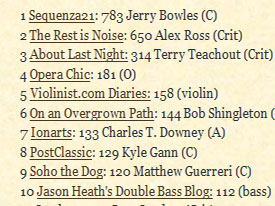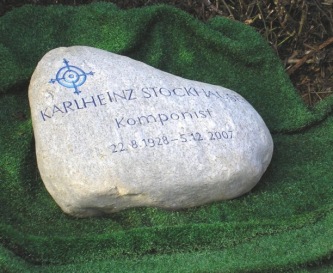 Gavin Borchert, composer and the Seattle Weekly‘s classical music critic, has an interesting take in this week’s rag, on current calls for jazzing-up or otherwise “slumming” the concert experience. A couple cogent paragraphs:
Gavin Borchert, composer and the Seattle Weekly‘s classical music critic, has an interesting take in this week’s rag, on current calls for jazzing-up or otherwise “slumming” the concert experience. A couple cogent paragraphs:
A couple of things puzzle me. First, the classical concert experience is, in all essentials, identical to that of dance, theater, literary events, or for that matter—barring the munching of popcorn and cheering the fireball deaths of villains—movies. Go to the performance space, buy a ticket, sit down in rows, watch and listen, try not to disturb your fellow audience members. Yet it’s only in conjunction with concerts that you hear complaints about what a crushing burden this all is. Second, why is sitting quietly considered such an unendurable ordeal? Millions of people do it every night in front of their televisions.
[….]
So what have we learned? Well, maybe people behave the way they do at concerts not because it’s an artificial standard imposed by ironclad tradition but because the music sounds better that way. Maybe listeners feel classical music most deeply when they pay quiet attention to it. Maybe sometimes not clapping is OK, and we don’t need to rush in and obliterate every silence. Maybe true innovations in concert presentation—new ways of getting music and music lovers together—will be concerned not with questions of formal vs. informal, loose vs. uptight, but with what setting best allows music to work its magic.


 Gavin Borchert, composer and the Seattle Weekly‘s classical music critic, has an
Gavin Borchert, composer and the Seattle Weekly‘s classical music critic, has an  Paul Dirmeikis attended Stockhausen’s funeral on December 13, and has
Paul Dirmeikis attended Stockhausen’s funeral on December 13, and has